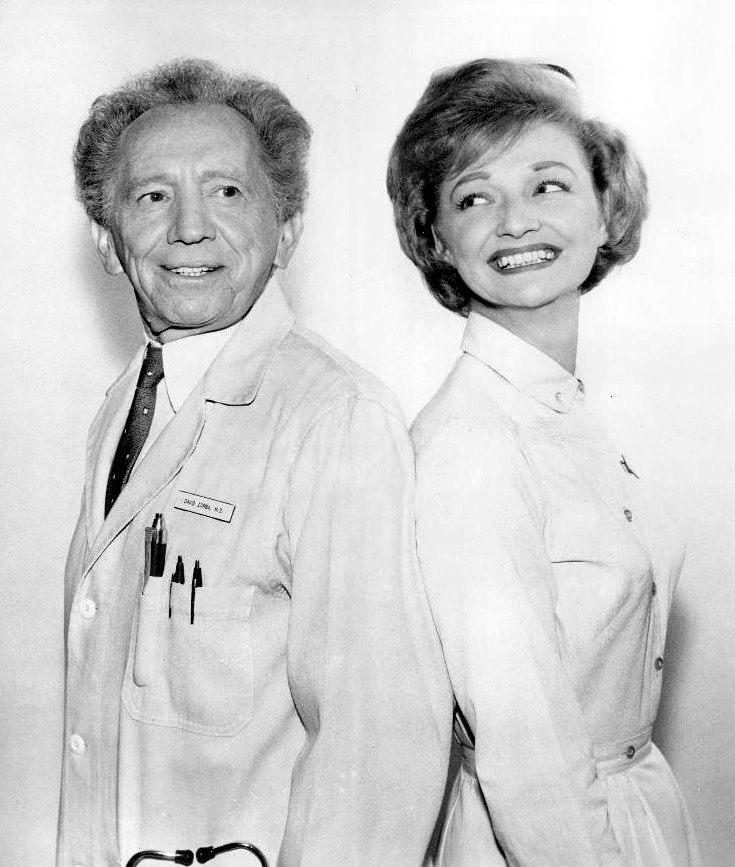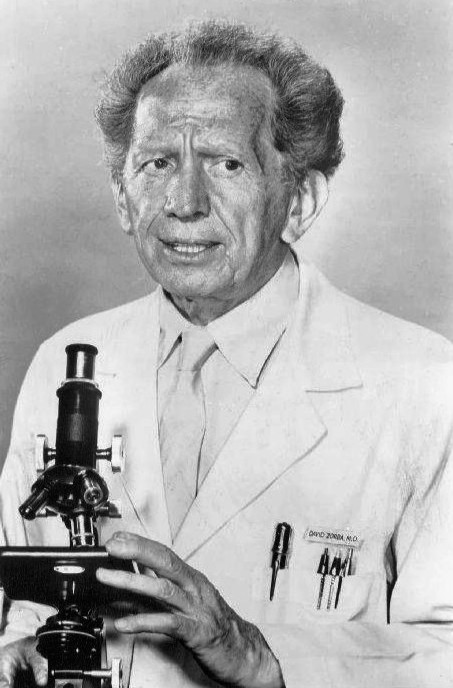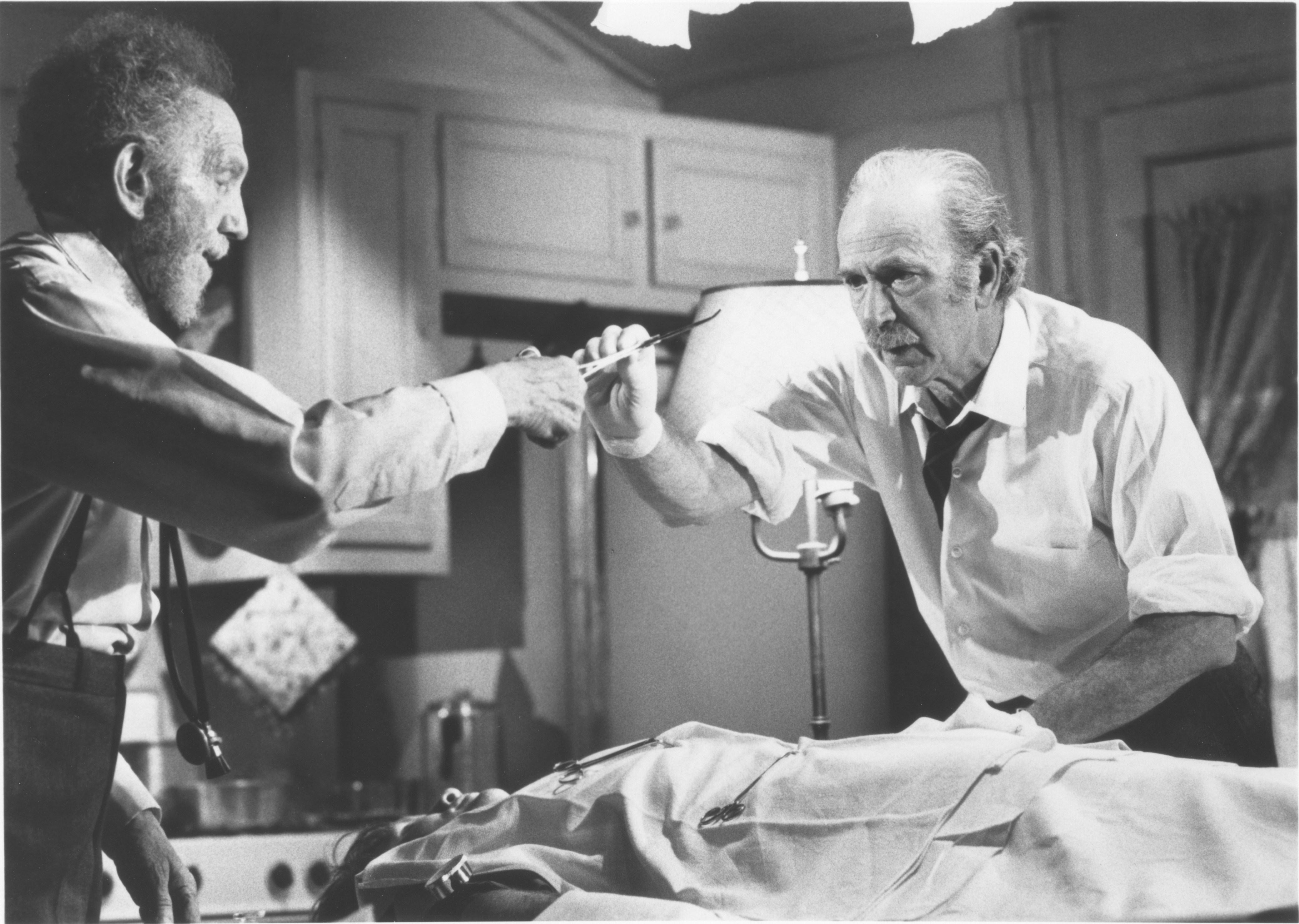1. Early Life and Background
Sam Jaffe's early life was marked by his family's Ukrainian Jewish heritage and an early introduction to the world of performance, which laid the foundation for his multifaceted career.
1.1. Birth and Family Relations
q=Lower East Side Tenement Museum|position=right
Jaffe was born Shalom Jaffe on March 10, 1891, in New York City, New York, specifically at 97 Orchard Street, which is now the site of the Lower East Side Tenement Museum. His parents, Heida (also known as Ada) and Barnett Jaffe, were Ukrainian Jewish immigrants. His mother was a prominent Yiddish actress in Odesa, Ukraine, before relocating to the United States, where she continued her career as a vaudeville star. His father was a jeweler. Sam was the youngest of four children, with older siblings named Abraham, Sophie, and Annie. From a young age, he began appearing in Yiddish theatre productions alongside his mother, gaining early exposure to the stage.
1.2. Education and Early Career
Jaffe pursued a rigorous academic path before fully committing to acting. He graduated from Townsend Harris High School and went on to study engineering at City College of New York, completing his degree in 1912. He furthered his education with graduate studies at Columbia University. Following his academic pursuits, Jaffe initially embarked on a career in education, working for several years as a mathematics teacher and later as the dean of mathematics at the Bronx Cultural Institute, a college preparatory school. However, his passion for performance eventually led him to return to acting in 1915.
2. Career
Sam Jaffe's career was extensive, encompassing significant contributions to stage, film, and television, demonstrating his remarkable range and enduring presence in the entertainment industry.
2.1. Stage Activities
Jaffe's professional acting career began in the theatre. Around 1915, he started performing on stage, and by 1918, he had established himself on Broadway. During his early years, he resided in the same apartment building as a young John Huston, forming a close friendship that lasted throughout their lives and later led to collaborations on films.
A notable early stage appearance was in the 1923 Broadway premiere of God of Vengeance (Got fun NekomeYiddish) by Sholem Asch, where Jaffe played the role of Reb Ali. This production gained notoriety when the entire cast, producer, and theatre owner were indicted and found guilty on charges of indecency in May 1923, highlighting the controversial nature of the play at the time. Despite his growing film career, Jaffe continued to prioritize his work on stage for many years.
2.2. Film Activities
Jaffe transitioned into film in the mid-1930s, leaving a lasting mark with his distinctive character portrayals and acclaimed performances.
2.2.1. Film Debut and Major Roles
Sam Jaffe made his film debut in 1934, immediately rising to prominence with his first role as the eccentric Tsar Peter III in The Scarlet Empress. His portrayal in this film left a vivid impression on audiences. In 1937, he took on the iconic role of the "High Lama" in Lost Horizon. Just two years later, in 1939, at the age of 47, Jaffe starred as the titular character, a bhisti (waterbearer), in Gunga Din, a role that further solidified his reputation.
2.2.2. Representative Works and Accolades
Jaffe's film career flourished with several critically acclaimed performances. In 1947, he appeared in Elia Kazan's Gentleman's Agreement. His performance as the criminal mastermind Doc Erwin Riedenschneider in John Huston's 1950 film The Asphalt Jungle earned him significant recognition, including a nomination for the Academy Award for Best Supporting Actor at the 23rd Academy Awards. Furthermore, for the same role, he was honored with the Venice Film Festival Award for Best Actor. In 1951, he played Professor Jacob Barnhardt in the science fiction classic The Day the Earth Stood Still. Jaffe also delivered a memorable performance as Simonides, the loyal merchant and slave, in William Wyler's 1959 Academy Award-winning epic Ben-Hur.
2.2.3. Blacklisting and Career Impact
During the 1950s, Sam Jaffe's career was significantly impacted by the Hollywood blacklist, a period when many entertainment professionals were denied employment due to suspected communist sympathies. Jaffe was blacklisted by Hollywood movie studio bosses, supposedly for being a communist sympathizer. This period led to a hiatus of approximately seven years from the screen for Jaffe, severely affecting his ability to work in the film industry.
Despite the prevailing political climate and the professional risks involved, some directors bravely defied the blacklist. Robert Wise hired Jaffe for The Day the Earth Stood Still, and later, William Wyler cast him in his role in Ben-Hur. These opportunities marked Jaffe's return to prominent roles, demonstrating resilience in the face of political persecution and highlighting the courage of those who supported blacklisted artists. The blacklisting era remains a controversial chapter in Hollywood history, underscoring the negative impact of political pressure on artistic freedom and individual careers.
2.3. Television Activities
Jaffe also had a prolific career in television, becoming a familiar face to audiences through both regular roles and numerous guest appearances.

From 1961 to 1965, Jaffe co-starred in the ABC television series Ben Casey, playing the role of Dr. David Zorba alongside Vince Edwards. He appeared in 127 episodes of the series, which became one of his most recognized roles. He also made many guest appearances on various popular television series throughout his career.
Notable guest roles include:
- Alfred Hitchcock Presents (1960, 1961) as the Abbot and Hal Ballew.
- The Law and Mr. Jones (1960-1961) as Martin Berger.
- The Westerner (1961) as Old Man McKeen.
- The Untouchables (1961) as Luigi Valcone.
- Naked City (1961) as Lazslo Lubasz.
- The Islanders (1961) as Papa Mathews.
- Daniel Boone (1964 TV series) (1965) as Jed Tolson.
- Bonanza (1966) as Emperor Norton.
- Batman (1966) as Mr. Zoltan Zorba.
- Night Gallery (1969) in "The Escape Route" segment.
- Alias Smith and Jones (1971-1972) as Soapy Saunders in three episodes.
- The Snoop Sisters (1973) as Issac Waldersack.
- The miniseries QB VII (1974) as Dr. Mark Tessler.
- The Streets of San Francisco (1974) as Alex Zubatuk.
- S.W.A.T. (1975) as Dr. Brunner.
- The Columbo episode "Forgotten Lady" (1975), where he co-starred as a retired doctor murdered by Janet Leigh.
- Harry O (1975) as Dr. Howard Cambridge.
- The Bionic Woman (1976) as Admiral Richter.
- Kojak (1977) as Papa.
- Flying High (1978) as Alsdorf.
- Buck Rogers in the 25th Century (1980) as Council Leader/The Keeper.
- The Love Boat (1983) as Professor Weber/Roscoe Weber.

Jaffe's extensive television career continued with numerous appearances in TV movies and specials, showcasing his versatility across different formats.

3. Personal Life
Sam Jaffe's personal life included two marriages, though he had no children from either union. In 1926, he married Lillian Taiz, an American operatic soprano and musical comedy star. Their marriage lasted until her death from cancer in 1941. Fifteen years later, in 1956, Jaffe married actress Bettye Ackerman, who was 33 years his junior. They later co-starred together in the television series Ben Casey. Bettye Ackerman passed away on November 1, 2006. Jaffe had no children from either of his marriages. Politically, Jaffe was a Democrat and actively supported the campaign of Adlai Stevenson II during the 1952 presidential election.
4. Death
Sam Jaffe passed away from cancer in Beverly Hills, California, on March 24, 1984, just two weeks after his 93rd birthday. Following his death, he was cremated at the Pasadena Crematory in Altadena, California. His ashes were given to his surviving wife, Bettye Ackerman. Upon her death in 2006, Jaffe's ashes were interred with hers at Williston Cemetery in Williston, South Carolina.
5. Assessment and Impact
Sam Jaffe's career was marked by critical acclaim for his acting prowess and his ability to embody a wide range of characters, leaving a significant impact on film and television. However, his career was also notably affected by the political climate of the 1950s.
5.1. Positive Assessment
Jaffe was widely praised for his distinctive acting abilities and versatility. His performances, particularly as the "High Lama" in Lost Horizon, the titular character in Gunga Din, and Doc Erwin Riedenschneider in The Asphalt Jungle, are considered memorable and enduring contributions to cinema. His ability to portray complex and often eccentric characters with depth and nuance earned him critical accolades, including an Academy Award nomination and a Venice Film Festival Best Actor award. Beyond acting, his background as a teacher, musician, and engineer underscored a multifaceted intellect that likely informed his diverse character portrayals. His long-running role in Ben Casey also solidified his status as a beloved figure in television.
5.2. Controversies and Criticism
The most significant controversy impacting Sam Jaffe's career was his inclusion on the Hollywood blacklist during the 1950s. Accused of being a communist sympathizer, Jaffe, like many other artists, faced severe professional repercussions, including a forced seven-year absence from the screen. This period represented a grave infringement on the human rights and artistic freedom of individuals in the entertainment industry. The blacklisting not only unjustly curtailed the careers of talented professionals but also stifled creative expression and critical thought within the arts. Jaffe's experience serves as a stark reminder of the detrimental effects of political persecution on individuals and the broader cultural landscape, highlighting the importance of defending democratic values and freedom of expression. His eventual return to prominence, facilitated by courageous directors, underscored the resilience of artists in the face of such adversity.
6. Filmography
Sam Jaffe had an extensive career in both film and television.
6.1. Film
| Year | Film | Role | Director |
|---|---|---|---|
| 1916 | A Cheap Vacation | ||
| 1934 | The Scarlet Empress | Grand Duke Peter | Josef von Sternberg |
| 1934 | We Live Again | Gregory Simonson | Rouben Mamoulian |
| 1937 | Lost Horizon | High Lama | Frank Capra |
| 1938 | The Adventures of Robin Hood | Man who tells men to meet Robin at Gallows Oaks | |
| 1939 | Gunga Din | Gunga Din | George Stevens |
| 1943 | Stage Door Canteen | Sam Jaffe | Frank Borzage |
| 1946 | 13 Rue Madeleine | Mayor Galimard | Henry Hathaway |
| 1947 | Gentleman's Agreement | Professor Fred Lieberman | Elia Kazan |
| 1949 | The Accused | Dr. Romley | William Dieterle |
| 1949 | Rope of Sand | Dr. Francis Hunter | William Dieterle |
| 1950 | The Asphalt Jungle | Doc Erwin Riedenschneider | John Huston |
| 1951 | I Can Get It for You Wholesale | Sam Cooper | Michael Gordon |
| 1951 | The Day the Earth Stood Still | Professor Jacob Barnhardt | Robert Wise |
| 1953 | Main Street to Broadway | First Nighter | Tay Garnett |
| 1957 | Les Espions | Sam Cooper, head of the American spy network | Henri-Georges Clouzot |
| 1958 | The Barbarian and the Geisha | Henry Heusken, translator-secretary | John Huston |
| 1959 | Ben-Hur | Simonides, merchant and loyal slave | William Wyler |
| 1967 | A Guide for the Married Man | Technical Adviser (Shrink) | Gene Kelly |
| 1967 | Tarzan's Jungle Rebellion | Dr. Singleton | |
| 1968 | La Bataille de San Sebastian | Father Joseph | Henri Verneuil |
| 1969 | The Great Bank Robbery | Brother Lilac Bailey (Art Forger) | Hy Averback |
| 1970 | The Dunwich Horror | Old Whateley | Daniel Haller |
| 1970 | Quarantined | Mr. Berryman | Leo Penn |
| 1970 | The Old Man Who Cried Wolf | Abe Stillman | Walter Grauman |
| 1971 | Who Killed the Mysterious Mr. Foster? | Toby | |
| 1971 | Bedknobs and Broomsticks | Bookman | Robert Stevenson |
| 1971 | Enemies | Gittelman | |
| 1971 | The Tell-Tale Heart | The Old Man | |
| 1973 | Saga of Sonora | Old Sam | |
| 1976 | The Sad and Lonely Sundays | Dr. Sweeny | |
| 1980 | Gideon's Trumpet | 1st Supreme Court Justice | |
| 1980 | Battle Beyond the Stars | Dr. Hephaestus | Jimmy T. Murakami |
| 1984 | Nothing Lasts Forever | Father Knickerbocker | Tom Schiller |
| 1984 | On the Line | El Gabacho |
6.2. Television
| Year | Title | Role |
|---|---|---|
| 1960 | Alfred Hitchcock Presents (Season 5 Episode 16: "The Ikon of Elijah") | The Abbot |
| 1960-1961 | The Law and Mr. Jones | Martin Berger (2 episodes) |
| 1961 | Alfred Hitchcock Presents (Season 6 Episode 18: "The Greatest Monster of Them All") | Hal Ballew |
| 1961 | The Westerner (episode "The Old Man") | Old Man McKeen |
| 1961 | The Untouchables (episode "Augie 'The Banker' Ciamino") | Luigi Valcone |
| 1961 | Naked City (episode "Economy of Death") | Lazslo Lubasz |
| 1961 | The Islanders (episode "To Bell a Cat") | Papa Mathews |
| 1961-1965 | Ben Casey (series) | Dr. David Zorba (127 episodes) |
| 1965 | Daniel Boone (1964 TV series) (S2/E12 "The First Beau") | Jed Tolson |
| 1966 | Bonanza (episode "The Emperor Norton") | Joshua Norton |
| 1966 | Batman (episode "Walk the Straight and Narrow") | Zoltan Zorba |
| 1967 | Tarzan | Singleton (2 episodes) |
| 1969 | Night Gallery ("The Escape Route" segment) | Bleum |
| 1971-1972 | Alias Smith and Jones | Soapy Saunders (3 episodes) |
| 1973 | The Snoop Sisters (episode "Corpse and Robbers") | Issac Waldersack |
| 1974 | QB VII (miniseries) | Dr. Mark Tessler |
| 1974 | The Streets of San Francisco (episode "Mr. Nobody") | Alex Zubatuk |
| 1975 | S.W.A.T. (episode "Omega One") | Dr. Brunner |
| 1975 | Columbo: "Forgotten Lady" | Henry Willis |
| 1975 | Harry O (episode "The Acolyte") | Dr. Howard Cambridge |
| 1976 | The Bionic Woman (episode "Kill Oscar: Part 3") | Admiral Richter |
| 1977 | Kojak (episode "Tears for All Who Loved Her") | Papa |
| 1978 | Flying High (episode "Fear of Cheesecake") | Alsdorf |
| 1980 | Buck Rogers in the 25th Century (episode "Flight Of The War Witch") | Council Leader/The Keeper |
| 1983 | The Love Boat (Season 6 Episode 26) | Professor Weber/Roscoe Weber |